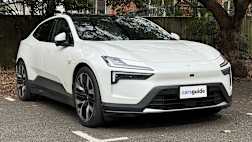The Takata airbag recalls continue to intensify, with confirmation that several carmakers have replaced the faulty inflators with newer versions of the same defective part, which will themselves, eventually require replacement.
BMW, Fiat Chyrsler Automobiles (FCA), Honda, Nissan, and Subaru have all provided statements regarding the current state of their call backs locally.
Honda Australia says a secondary recall has been issued for "a small number of Takata inflators", with one batch of 2023 vehicles originally called back in August 2009, and then again in May 2015.
Of the initial lot, 1747 inflators were replaced with a new like-for-like part, but the follow-up recall has seen 624 of these resolved after the call back was reissued. From the original recall, 106 vehicles still need to be repaired.
The NHTSA's research shows these airbags will not need to be replaced for at least six years.
A separate, second batch of 788 vehicles was called back in June 2010, and subsequently once more in January this year.
Similar to the aforementioned recall, 592 inflators were replaced with a newer version of the same part, with 248 of these since receiving another replacement. In total, 147 vehicles from this lot are yet to undergo a repair at all.
Nissan Australia says its voluntary call backs look to replace the driver and/or front passenger inflators in impacted vehicles, with the replacement parts said to be "new Takata airbags, which are free of manufacturing defects".
However, in May last year, the National Highway Traffic Safety Administration (NHTSA) in the USA discovered the revised airbags – made without a chemical drying agent, dubbed desiccant – would themselves eventually require a recall.
Nevertheless, the NHTSA's research shows these airbags will not need to be replaced for at least six years, with no unreasonable risk posed to vehicle occupants during that time span.
According to the Japanese company, "this scenario is deemed more suitable than leaving old airbag inflators in use while replacement parts are produced and delivered".
FCA Australia says its brand vehicles represent only 1.2 per cent of the total number called back nationally.
For its affected models, all driver's side airbags are being substituted with parts from an alternate supplier, with enough stock currently on hand to meet existing demand.
All manufacturers caught up in the airbag recalls do not produce inflators themselves, thus, they rely on third party suppliers, like Takata, to provide these parts.
Meanwhile, every passenger side airbag is being replaced with the new Takata part, which places FCA in the same position as Nissan, with follow-up recalls necessitated.
Subaru Australia has confirmed 9973 of its vehicles, which have already had their inflators replaced, will require a second replacement.
It also says 63,760 inflators not requiring subsequent follow-up have been sourced, with an additional 76,882 parts expected to arrive locally before the year's end.
BMW Australia reports that 40 per cent of its call backs have been completed, with a second round of recalls announced in January to rectify the replacement of like-for-like Takata airbags.
The local arms of Mazda, Mitsubishi, Lexus, and Toyota have also been contacted for a comment.
All manufacturers caught up in the airbag recalls do not produce inflators themselves, thus, they rely on third party suppliers, like Takata, to provide these parts.
Eighteen people have died worldwide, likely due to Takata airbag inflators rupturing during deployment, with shrapnel entering the cabin causing either death or injury.
The most recent case occurred on July 13 in Cabramatta, New South Wales when a male passed away after his 2009 Honda CR-V was involved in a car crash. This was the first Takata-related fatality on Australian roads.
Following the death, Honda Australia released a statement saying its "thoughts and deepest sympathies are with the family of the driver during this difficult time".
Fourteen brands have been impacted in Australia alone, with 2.3 million vehicles affected locally.
Globally, more than 100 million vehicles from over 30 brands have been identified as being at risk.
Fourteen brands have been impacted in Australia alone, with 2.3 million vehicles affected locally.
The Australasian Competition and Consumer Commission (ACCC) recently announced it will be undertaking its own investigation into the local handling of the call backs.
Last month, Takata filed for bankruptcy protection in the United States and Japan, with its global liabilities from the scandal estimated to reach up to $US10 billion ($A13.2 billion).
Anyone looking for further information on the Takata airbag recalls – including a list of impacted Vehicle Identification Numbers (VIN) – can search the ACCC's Product Safety Australia website.





.jpg)
.jpg)

.jpg)
_0.jpg)


.jpg)




.jpg)
.jpg)










